Reply To:
Name - Reply Comment
“The happiness that I lost is much greater than the suffering I endured in life. All I need is affection. I need to be born again to live with the loved ones I lost” -
Women and youth from different parts of the country, the Northern, Eastern, Southern, North Western, North Central and Uva provinces, come together to exchange their own personal experiences of war and/or political violence, to understand mutual emotions and healing.
Memorialisation is understood by them to be an integral part of Reconciliation, and for this reason, the Centre for Equality and Justice (CEJ) seeks to engage them in the process, in creative ways.
1) “A Memory Map” - a daunting reflection.
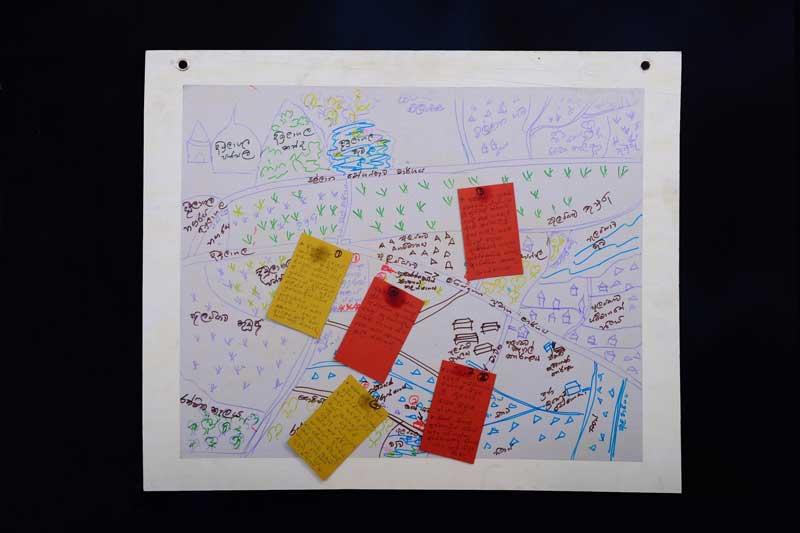
Women who had lost their loved ones during both the JVP Insurrection and the Civil War visualise their villages and signpost sites of violence.
2) “A Wishing Tree” - an invocation.
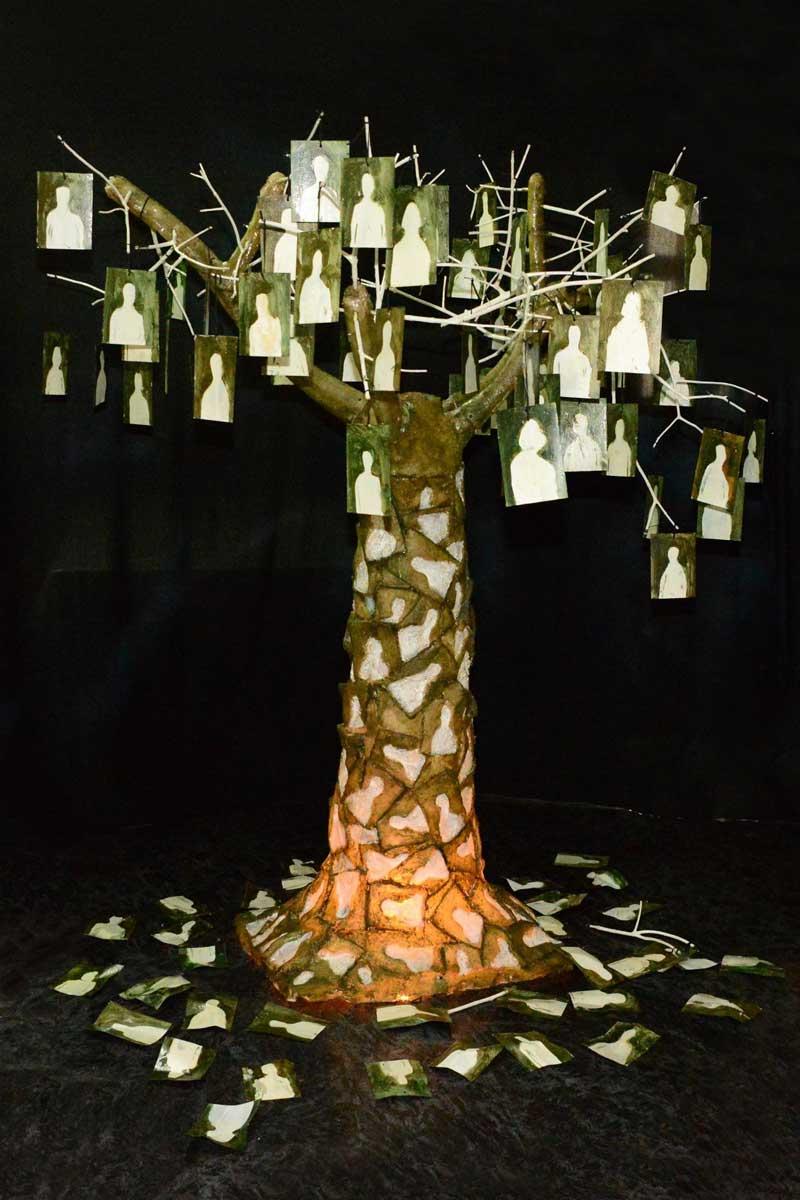
As a form of spiritual and psychological healing, connecting its roots to the most humane aspects possible, these afflicted women gathered to manifest their wishes, prayers and hopes, in a plea for help from the society, culture and religion, to overcome their unspeakable despair.
3) “Passing it On” - A Saree painting exercise
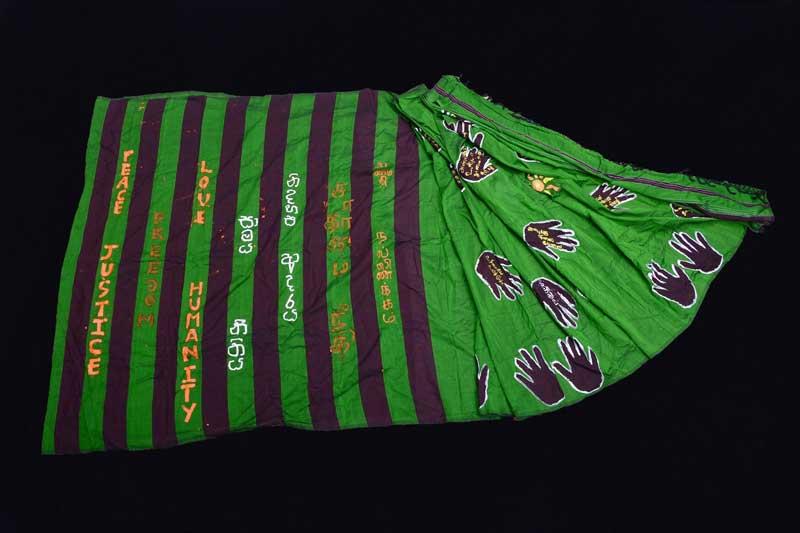
Women and youth work together in a creative space to convey the message of ‘Hope’ by symbolizing Peace, Trust and Affection.
4) “A way to find Solace” - A collection of paintings
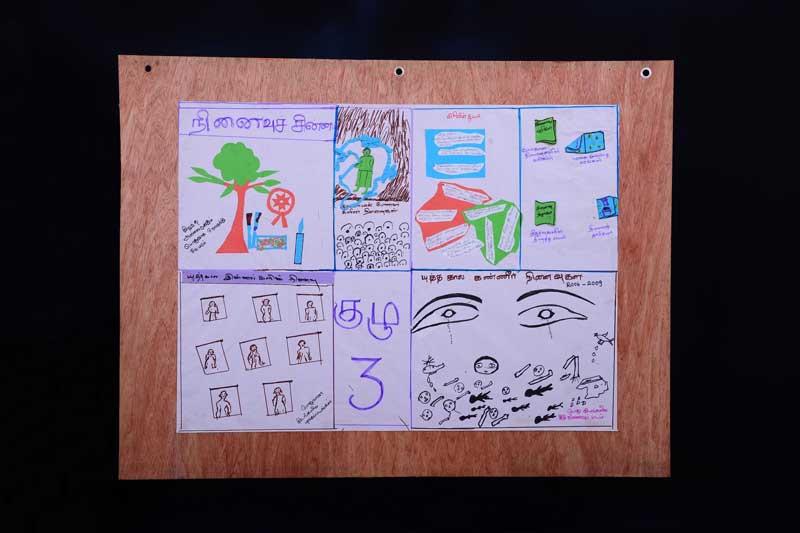
Families who have lost their loved ones may have something belonging to their loved ones that they may want to hold onto, as a memory. For those who don't, all they seek is to create memorials to pay respect, to acknowledge their existence, and to remember what they meant to each other.
5) “Women filling-in the Void” - A painting
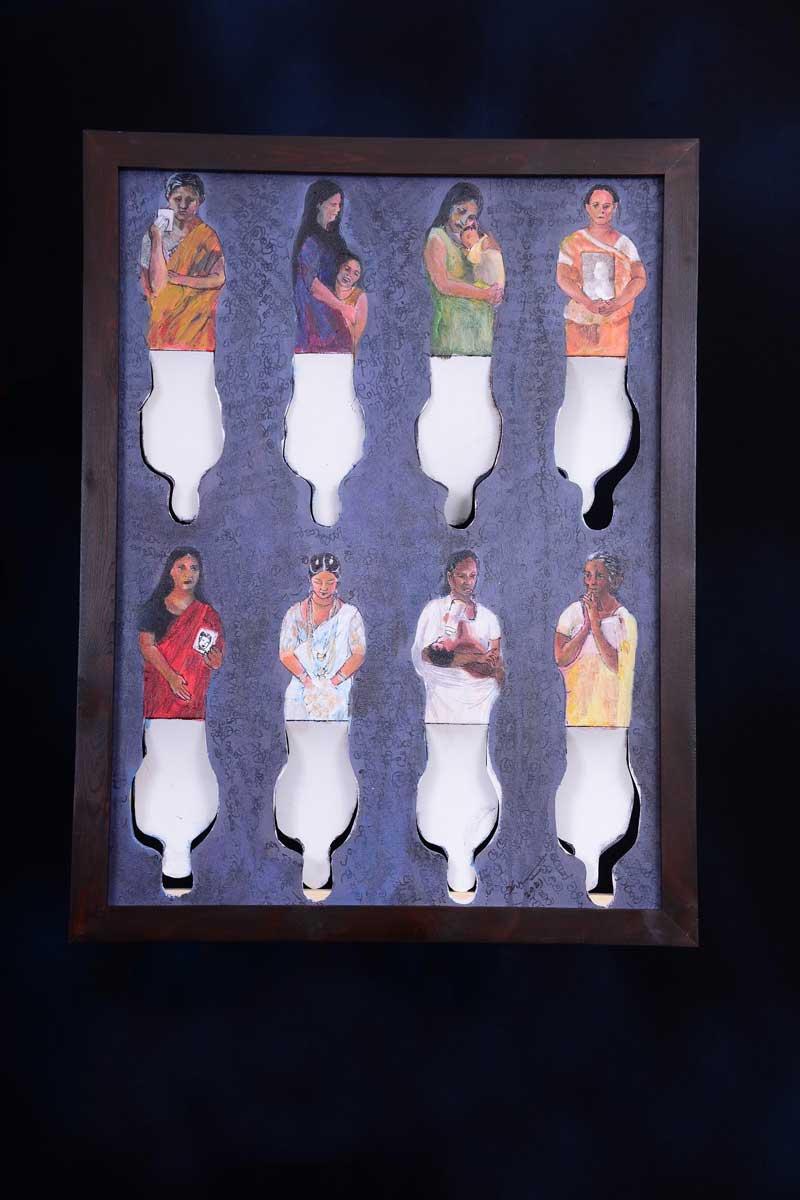
After the loss of a loved one, women were left to take over multiple roles starting from the household, the neighbourhood to their communities. Amidst the threats, humiliations and tragedies imposed by society, at economic, cultural and social levels, women have set aside their own selves to raise their children, to uplift their communities, and to nurture the society at large.
6) “The Lost Person” - An installation

Families whose lost loved ones are missing are put into systematic psychological destruction by a sense of false hope that their loved ones may still be alive and may return one day. Countless are mothers, wives and daughters who still await the return of their loved ones.
7) “Reparated Hands” - An installation

Sinhalese, Tamils and Muslims of Sri Lanka still bandage their gashes, all alike. The healing process is still ongoing. They await answers, justice and reparations to move forward in life.
8) “Voice of Chair & the Deceptive Veil” - An installation
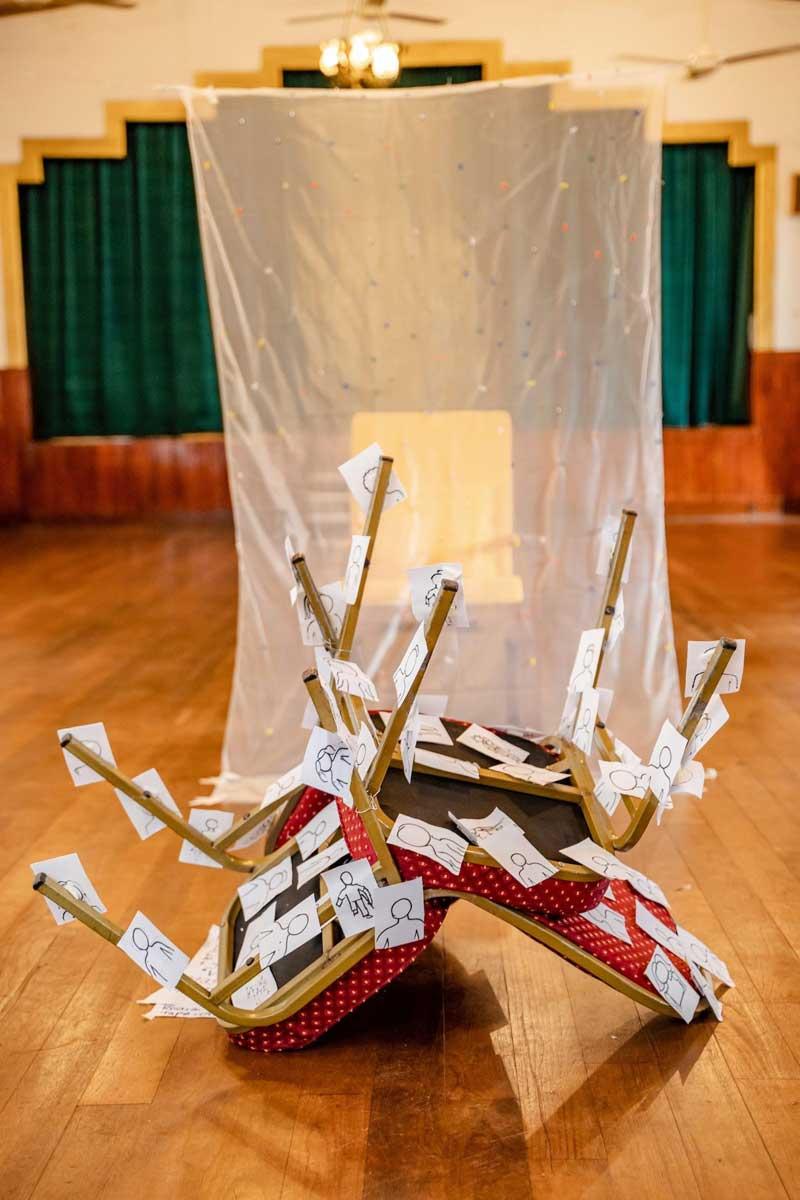
The victim survivors trek an onerous path before receiving justice or reparations. The inaction of the authorities and the obstacles to be passed thereof have continued to let these women down. The crucial and unfulfilled process a victim survivor of conflict is forced to go through to receive justice, is as tragic as it can be.
9) “Tears of Distress” - An installation
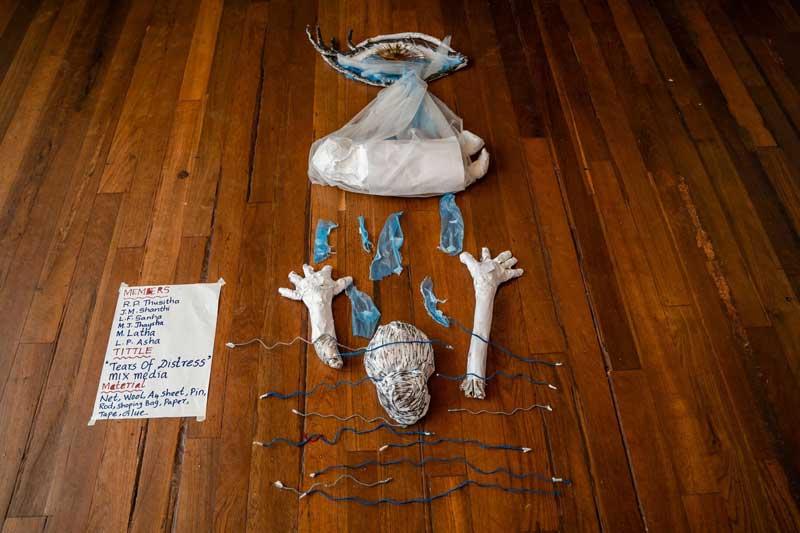
The unspeakable loss, the eternal sorrow a mother lives through following the death of her child is an experience that can be shared by countless women in the country. The continuous longing for their loved ones could never be appeased.
10) “Wonderful Cage” - An installation

The realities of the lives of afflicted women are farthest to what is widely perceived. The outward illusion of their lives being seemingly fine is deceiving and pushes them further into the depths. Only if one looks closely will they see the distress and suffering these women would continue to endure.
Kamini Rathnayake, Intern, Centre for Equality and Justice.